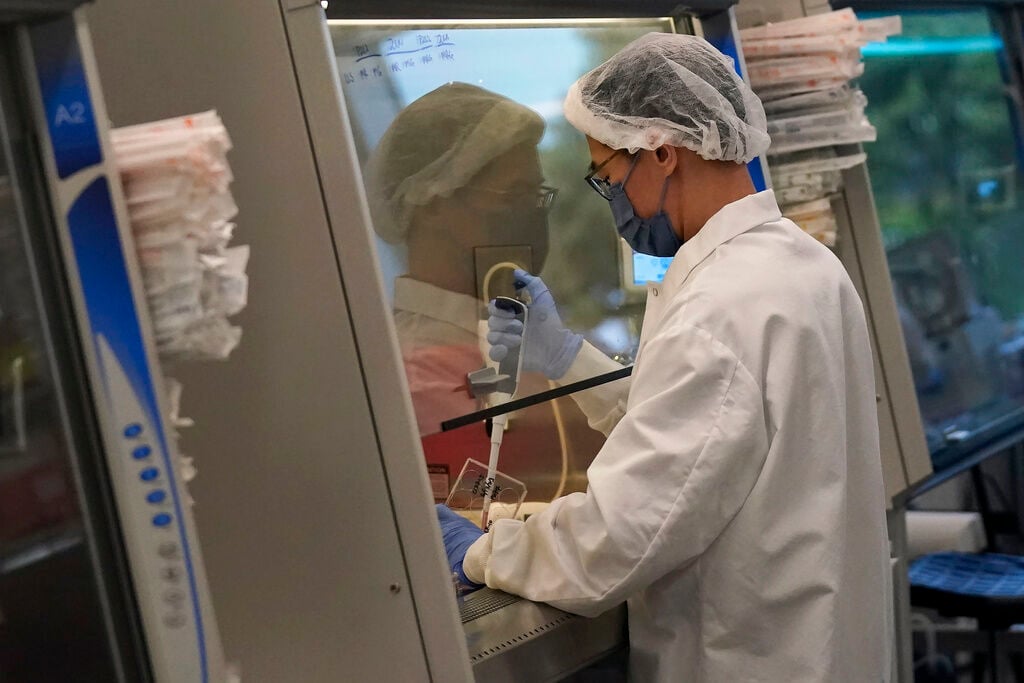PHOENIX — A House Republican is questioning the legality of a measure advanced by his colleagues to decide what is “meat’’ and who can legally use that word to market products.
Rep. Alexander Kolodin of Scottsdale said the effort some lawmakers are pushing to provide what they say is more information to shoppers is unconstitutionally vague and overly broad. In fact, he told them that, as worded, House Bill 2244 could make it illegal for someone to suggest that something clearly labeled a veggie burger is “meaty.’’
But Kolodin turned out to be the lone Republican with that view. Every other House member of the GOP, along with a handful of Democrats, voted this past week to approve the measure.
That now sends it to the Senate. If the proposal by Rep. Quang Nguyen, R-Prescott Valley, clears that chamber, it will be up to Democratic Gov. Katie Hobbs to decide whether the state should be in the business of defining “meat.’’
The proposed legislation is a response to lab-grown meats.
Complicating the issue is that, from a biological perspective, what is grown in a laboratory from animals’ cells is essentially the same, at a cellular level, as something that came off of a living animal.
The U.S. Food and Drug Administration has approved some types of lab-grown chicken. But foes raise issues about the hormones and chemicals used to keep the cells reproducing and say long-term studies are needed to determine if there are health effects.
Rep. David Marshall, R-Snowflake, has a proposal to outlaw the sale of any cell-cultured animal produce for human or animal consumption. His HB 2121 would allow the Arizona Department of Agriculture to levy $25,000 fines and let anyone whose business is “adversely affected’’ — cattle ranchers — seek damages of up to $100,000.
That measure is set for a hearing this week.
Nguyen’s bill is far narrower.
It would permit the sale of lab-grown meat. What people want to eat is up to them, he said.
The key is consumer disclosure, Nguyen said.
HB 2244 would make it illegal to represent a product as meat or poultry if it is a “cell-cultured food product’’ or “a synthetic product derived from a plant, insect or other source.’’
Nguyen said the measure is legal. “This bill is very clear and assures that in Arizona, when you go to the grocery store, you can actually see what you’re buying,’’ he said. “So if it’s traditional slaughter meat or poultry, it will list that.’’
Anything else would have to be labeled as such.
Kolodin, however, said what’s in the measure is not that simple.
The issue goes not to the merits of plant-based and lab-grown meat, but whether the legislation tortures the language, he said.
For example, HB 2244 would make it illegal to use a term that is the same or “deceptively similar’’ to one that has been used or historically defined to refer to what comes from what was once a living animal.
“What the heck does that mean?’’ Kolodin asked.
During a discussion on the measure, he asked Rep. Selina Bliss, R-Prescott, for example, what would happen if he used the term “meaty veggie burgers.’’
Bliss acknowledged there is no simple answer.
“Now I think we’re crossing into somewhat of a judgmental opinion,’’ she responded. “I would probably have to ask someone how that would play out in a court of law.’’
Kolodin told colleagues that is not an acceptable option.
“It has never been my experience that the courts have been any great respecters of the Constitution of this country,’’ he said. “That responsibility falls more and more appropriately on the Legislature.’’
Kolodin said he probably would be OK with something that requires items be labeled in a way to ensure the “reasonable consumer’’ knows they originally came from a lab.
“But that is not what this does,’’ he said.
Most Democrats voted against the measure.
“The FDA already regulates this,’’ said Rep. Mariana Sandoval of Goodyear. “So, in my opinion, there’s no need for this.’’
GOOD Meat, a California-based company that produces lab-grown meat, has received clearance from the U.S. Food and Drug Administration to bring its cultivated chicken to the market. The company's chicken is the second cultivated meat product to receive a "no-questions" letter from the FDA, which means that the agency accepts the company's conclusion that its product is safe for human consumption.





